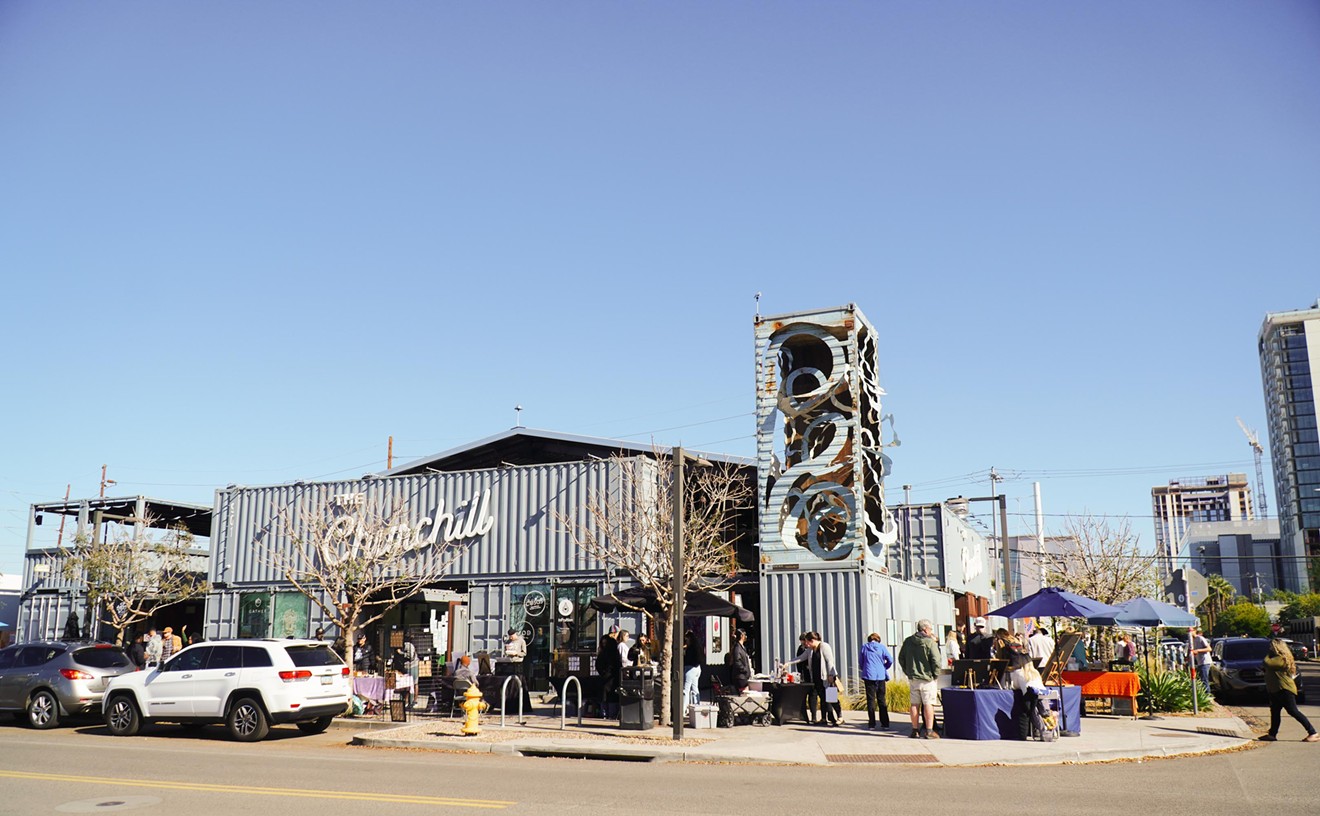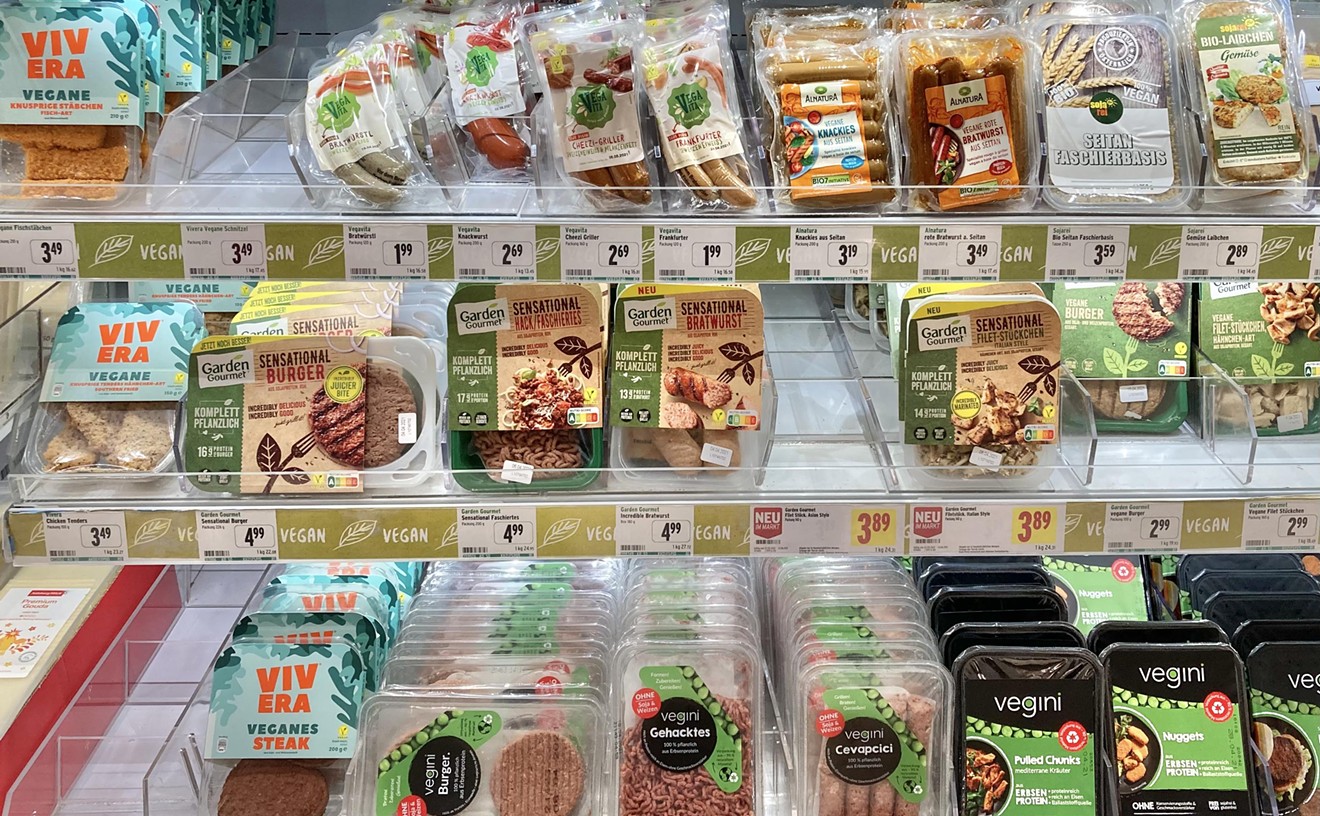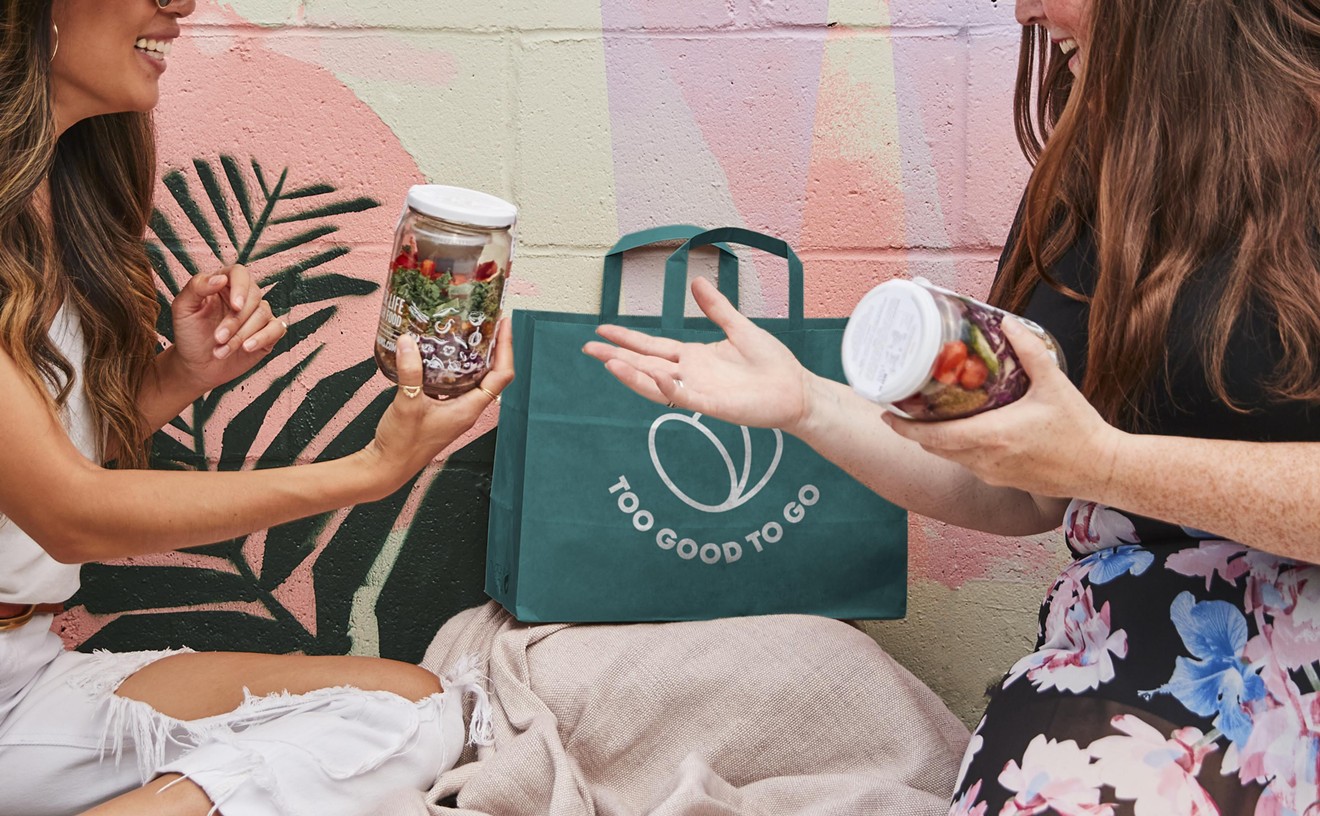Some breweries are finding that there's more demand for their beers than supply, and several have pulled out of the Arizona market over the past year. Are you guys experiencing the same kind of growth, and are you worried about it at all?
We keep on it. We've grown pretty fast, but not as fast as Lagunitas or Stone or one of those guys. We're about half their size right now. We don't have the wild, crazy growth they have. But they're in 30 to 40 states; we're in six. I think it's going to be hard to support distant markets in the future.
One of the interesting things about owning a small brewery is that you really have to stay true to what you're about. It's easy to get sucked into what other people are doing. We're all different. As long as you're authentic in what you're doing and connected to what you're doing, it works. You can try to grow fast, but it's going to come when it's going to come. I see a lot of start-up breweries really trying to push the envelope right out of the box, and they suffer for it. I think their growth will come when people are ready for it.
So do newer breweries need to focus more on basics than they are now?I think that if you don't have the basics, if you don't have a local market, if you're not delivering great quality, good value beer, you're going to have issues. A lot of drinkers don't realize that the beers that get the most press — Parabola and Abacus, for example — aren't what keep the brewery running.
I couldn't make those beers if I didn't have a real brewery. So is it a problem that drinkers seem to be more interested in these bigger, more extreme beers?
No, because it keeps guys like you interested. I'm sure you've had DBA before, and for you maybe it now seems like a pretty standard British pale ale. It's a nice beer, but maybe you won't go out of your way to get it. These bigger beers, we used to make them sort of internally, and we only recently just decided to start selling them. We've been very reluctant to let them out. It took us a long time to get We've still got eight or nine beers that will just knock your socks off that you haven't seen yet. We've got Sticky Monkey, Helldorado, Bravo. We're releasing Double DBA later this year. Why would you be reluctant to let those out?
A lot of it has to do with timing. There are only so many months in a year. We've got Parabola coming out in a few weeks, then we've got a new beer — Wookie Jack — coming out four weeks after that, then we've got Double DBA. It comes back to the discussion we had when we started — if you've got four big beers in front of you at a tasting, they all get muddled. It's nice to be able to focus on one beer at a time and really break it down. For your anniversary ales, you blend all your barrel-aged beers together. Who are the lucky guys for that job?
It's sort of an eclectic group. We bring in a bunch of winemakers for the blending. The whole process takes us about two or three days. It's really sort of an interesting, chaotic process.
Do you approach it with a set flavor goal in mind?
Not really. Balance is the main thing. A lot of these beers are big barleywines, so that drives a lot of the flavor.
The Paso Robles wine community is great because it's not really pretentious. Most of the people we invite, we already know — they're already drinking beer at our place anyway. It's more low-key than you think. Some of the wine community has developed a certain pretentiousness. Are you worried the same thing might happen to beer?
I think money is a big part of being pretentious. You can only get so pretentious about a session pale ale that's $9 on the shelf. So it really depends. But yeah, if all we do is make $30 beers, there's a good chance people will get very pretentious. Who knows? I have a question for you: what do you think of stores like Total Wine? I think it has its place. I get most of my beers at local places where I know the owners, and I'd rather shop there because I know that they love beer as much as I do any know at least as much about beer as I do. I've been to tastings at Total Wine and BevMo where the person hosting it hardly seems to know what it is they're pouring. What about you?
It's an interesting market to watch, you know? When we started, I think I must have opened 40 BevMos in California personally. You know, meet the brewer, try my beers. Now Total Wine has come into California, and initially they put their store right across the street from BevMo. It's interesting because BevMo was initially accused of putting the little guy out of business; now it's Total Wine that's putting them out of business. I marvel at the market here, because you can have Total Wine, Costco and Whole Foods all in the same market, all catering to different sets of people and doing very well. It's fascinating. Something I've always wondered: how did you and Adam Firestone decide whose name was going first on the brewery? Armwrestle?
Well, Adam came from the wine industry to begin with, and his winery already carried the Firestone name. There was already that name recognition there, so we originally just went with Firestone for the brewery to benefit from that. It's funny, though — the brewery has only really become important to drinkers recently. I can remember just a few years back that brands were more important. A drinker wanted a Rolling Rock — they wouldn't ask for a Latrobe Brewing Co. beer. The shift toward looking for a specific brewery has only happened recently, and it's been really interesting to see.










